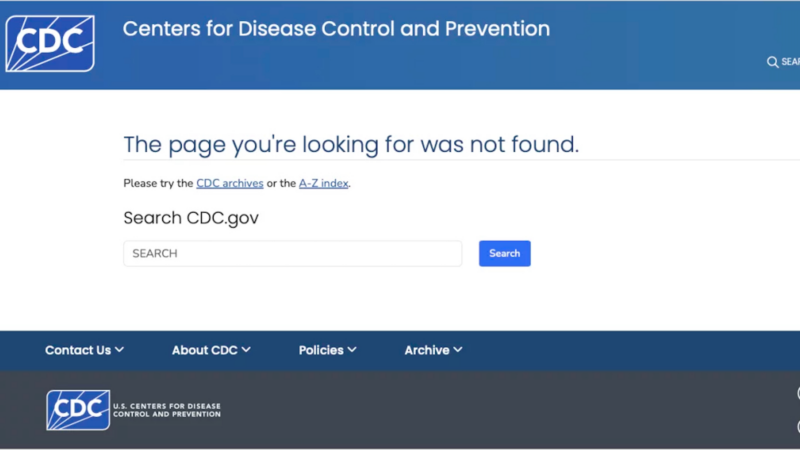The revolution will be screenshot (hopefully)
You’re reading the Code Switch newsletter, written by B.A. Parker.
You can subscribe here to get the newsletter delivered to your inbox, and listen to the Code Switch podcast to hear about all the messy and meaningful ways race shows up in all of our lives.
Over the past few weeks, we’ve been watching pieces of our online world disappear as businesses, schools and governmental agencies attempt to comply with President Trump’s new policies. Google got attention for removing events like Black History Month and Pride Month from its calendar. Google told the Associated Press that maintaining those dates on the calendar is not “scalable or sustainable.” And after Trump’s executive order changing the name of the Gulf of Mexico, Google Maps decided on Monday to change its map to the Gulf of America for U.S. users — a move that’s subsequently been followed by Apple Maps and Bing.
Also this week, Disney+ announced they are changing the disclaimers at the beginning of some of their earlier offerings like Dumbo and Peter Pan. Instead of the mea culpa citing the poor treatment and depiction of different cultures, it will now return to the content warning they used before 2020, “This program is presented as originally created and may contain stereotypes or negative depictions.”
And then there was the scramble to preserve as many government health websites as possible, because they were being purged and scrubbed for any mention of words like “transgender,” “immigrant,” and “LGBT.” The University of Colorado took down its main D.E.I. webpage, and in its place posted a new page for the Office of Collaboration. The list goes on and on.
All of this adds to the growing number of things that digital librarians at places like Common Crawl and the Internet Archive are trying to protect. And each of these examples highlight noticeable nicks in the digital landscape – this magic trick of what you see and know to be the truth swiftly hidden away.
But what happens on the other side of that digital erasure? For those who refuse to bend the knee?
The Associated Press found out. They put out a statement in January saying that despite the President’s Gulf of America executive order, they will continue calling the body of water the Gulf of Mexico, while also acknowledging the new name Trump chose. And for that, the White House barred the AP from attending two different Oval Office events on Tuesday (even Elon Musk’s 4-year-old son was invited to one of those events). In a letter to the White House shared with NPR, AP’s Executive Editor, Julie Pace wrote, “It is among the most basic tenets of the First Amendment that the government cannot retaliate against the public or the press for what they say.”
So as we watch more and more digital information disappear or be rewritten, the onus falls on the people to push back against corporate and governmental deletions and “corrections.” Like the individual who now manually logs Indigenous People’s Day along with their grandmother’s birthday into their online calendar. Or the person who refuses to let up on the problematic depiction of the Siamese cats in Lady and the Tramp. And let it be noted, there are a few places trying to maintain the fleeting integrity of the internet, you’ve just gotta keep looking for them. Trusty old MapQuest still says “Gulf of Mexico.”
Taiwan’s president pledges to defend island’s sovereignty after Chinese military drills
Taiwanese President Lai Ching-te vowed to defend the self-ruled island's sovereignty in the face of what he termed China's "expansionist ambitions," days after Beijing wrapped up live-fire military drills near its shores.
Deaths reported during widening protests in Iran sparked by ailing economy
The protests began due to economic pressures, with Iran's currency rapidly depreciating. Demonstrators have also chanted against the country's theocracy.
Congress failed to extend Obamacare subsidies. This Democrat says Trump can save them
Sen. Peter Welch, D-Vt., says he thinks the Senate can pass a "retroactive" Affordable Care Act subsidy extension, but "we need President Trump."
Rideshare union rights, social media limits and other state laws taking effect Jan. 1
Every new year, public media reporters across the country bring us some of the new state laws taking effect where they are. Here are six in 2026.
Guides to help you tackle your New Year’s resolutions
From building your strength to tackling credit card debt, NPR's Life Kit has a newsletter journey to help you tackle your New Year's resolution.
Guides to help you tackle your New Year’s resolutions
From building your strength to tackling credit card debt, NPR's Life Kit has a newsletter journey to help you tackle your New Year's resolution.






